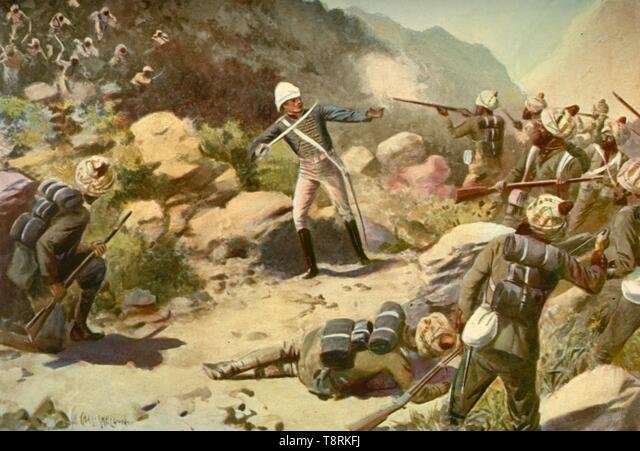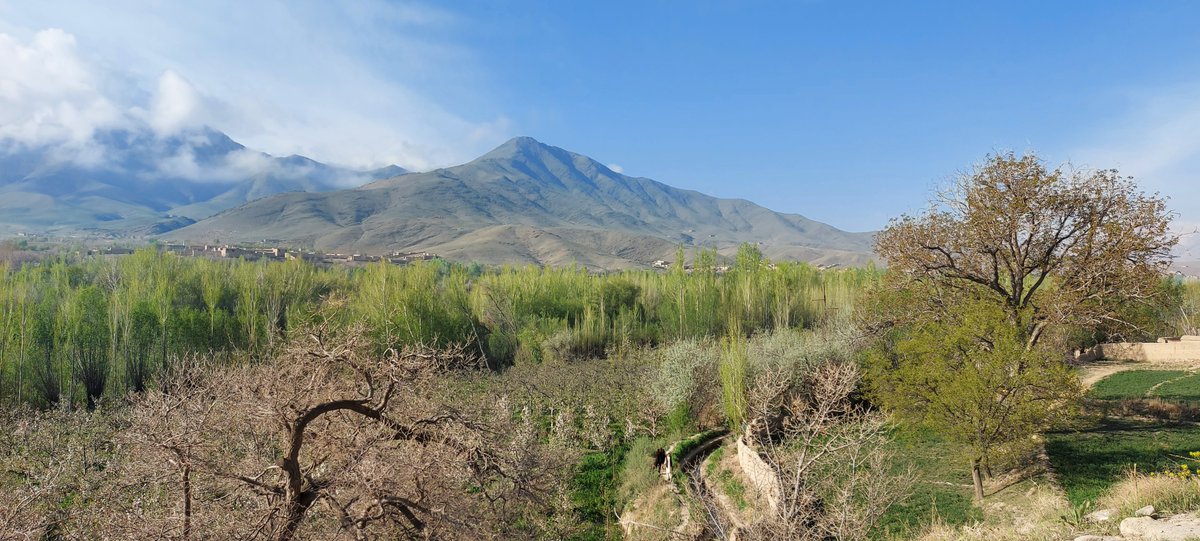Time for a thread presenting the other side of the story. Here goes...
#Taliban is a native, homegrown, movement in #Afghanistan, with roots & traditions stretching back to at least the 16th Century. 1/
#Taliban is a native, homegrown, movement in #Afghanistan, with roots & traditions stretching back to at least the 16th Century. 1/
https://twitter.com/StephanAJensen/status/1673604631404982272
The political idea that a group of mullahs should control government began to gain traction amongst Pashtun clerics on British India's North West Frontier in the late-19th Century. The Sufi silsila of the Akhund of Swat was at the forefront of this. 2/ 

Akhund of Swat, Abdul Ghaffar, had provided support & religious justification for Afghan King Dost Muhammad's campaign against the Sikhs in 1834. He went on to lead Mujahideen against the British during the Ambela Campaign of 1862. In 1893, the British drew the Durand Line. 3/ 

By then, Akhund of Swat's Sufi silsila was again prominent thru the Hadda Mullah, Najmuddin, who established a network of mullahs in Pashtun areas across British India's North West Frontier. These mullahs asserted themselves through local dispute resolution. 4/ 

Their ad hoc courts & ability to enforce their decisions through groups of armed taliban posed a direct threat to the writ of the British Raj & any British claims to political legitimacy. In 1897, things came to a head with the Mohmand Campaign. 5/ 

The campaign posed the Hadda Mullah's network of mullahs & armed taliban against a British force which included a young cavalry officer named Winston Churchill. Though the NW Frontier was to remain British-ruled til 1947, the Brits learned to tread there lightly. 6/ 

The Brits were to continue to face opposition from militant taliban networks on NW Frontier til they quit India. In 3rd Anglo-Afghan War, Amanullah Khan used these same networks; & the Faqir of Ipi was to continue his resistance to British & later Pakistani rule until 1960 7/ 

By the 1980s, millions of Afghan refugees had relocated into those same areas of the old North West Frontier. The traditions of the Akhund of Swat, Hadda Mullah & Faqir of Ipi (amongst others) naturally took on new resonance with the anti-Soviet Jihad. 8/ 

Throughout the whole period outlined above, of course, was the development of Deobandism. A lot gets written about Deobandism, typically equating it with a kind of South Asian Salafism. 9/ 

Established in the wake of the 1857 Indian Mutiny & decline of Muslim power & prestige in Hindustan, the Dar ul-Uloom Deoband aimed to be a reformist & revivalist Sufi college, with a formal scholarly structure. Its students were known as taliban. 10/ 

The Deobandis aimed to reassert Muslim pride, prestige and ultimately power in Asia. They emphasised an anticolonialist mindset, and the importance of correct Islamic dress and behaviour. 11/ 

This same mindset found fertile ground on the NW Frontier, and "amr bil-maroof wa nahi 'an al-mankar" ,or Propagation of Virtue & Prevention of Vice, formed the core mission of the Hadda Mullah & his taliban. 12/ 

In 1915, senior Indian Deobandi figures attempted to solicit support from the Ottoman Empire and Afghan King Habibullah for a rebellion against the British Raj. The Silk Letter Conspiracy failed, but Deobandi goals & teachings endured. 13/ 

There are other names to drop here, too: e.g. the 16th Century Bayazid Ansari, known as Pir Roshan, who led an army of Sufis against the Mughal Empire. 14/ 

And the Indian cleric Shah Waliullah, an ancestor of Deobandism, who granted religious legitimacy to Ahmad Shah Baba's campaigns in Hindustan in the 18th Century. 15/ 

Syed Ahmad Barelvi, too, deserves a mention. Founder of the South Asian Salafistesque "Ahl-i-Hadith" movement, his influence looms large over the development of Afghan Jihadism for the past 200 years. 16/ 

But at its core, the original methods and intent to bring the rule of law back to the people, was no different to that of the Hadda Mullah a century beforehand, and stands firmly in a long Afghan tradition. /19 

Mullah Omar was a Naqshbandi Sufi, and Sirajuddin Haqqani's honorific, "Khalifa", is a Sufi title. He too studied under a Naqshbandi master. /20 

There's a whole book on this stuff (and more) waiting to be published. Please don't hesitate to contact me if you can help with that! /ENDS
#Afghanistan #Taliban
#Afghanistan #Taliban

It's also worth noting that the Taliban of the 1990s did not set out to rule Afghanistan, but rather to pursue a mission of Amr bil-maroof in their native Kandahar. /17 

• • •
Missing some Tweet in this thread? You can try to
force a refresh











